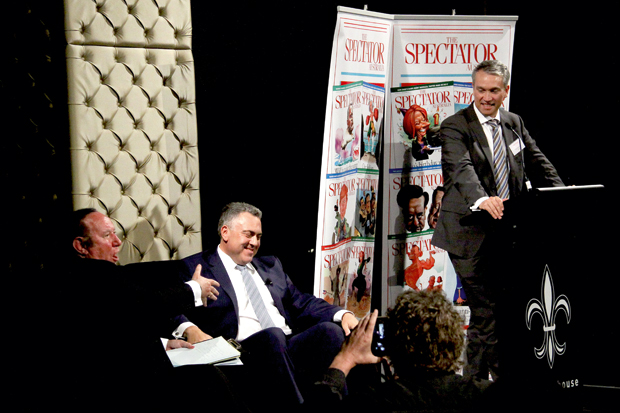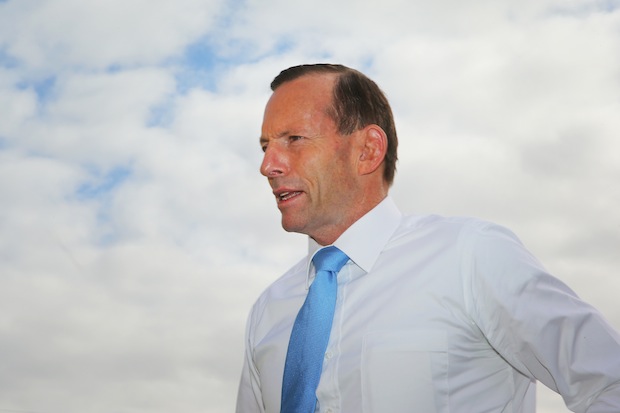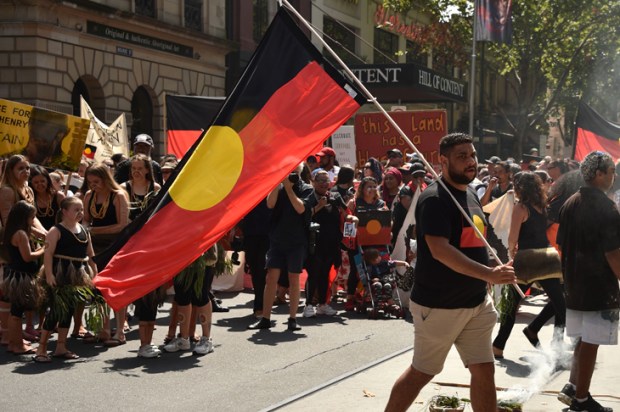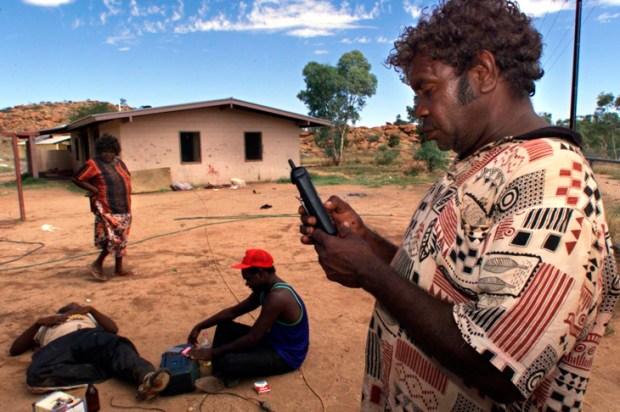When Attorney-General George Brandis told the Senate in March this year that ‘people do have a right to be bigots’, his comments were seized upon by opponents of the Abbott government’s plan to reform section 18C of the Racial Discrimination Act.
Across the Twittersphere, Brandis’s ‘gaffe’ was seen to confirm the malicious intent behind the proposed changes to the RDA. Here was proof, we were told, that removing the ability of a person or a group of people to take legal action against speech that ‘offends, insults, humiliates or intimidates’ on the basis of race would license racist speech and unleash the streak of prejudice thought to perpetually run through the Australian character.
The assumption is that the law as it currently stands is the only thing restraining racial hatred and keeping public discourse civil in Australia. What defenders of section 18C ignore is that social sanctions exist to enforce culturally accepted standards of behaviour. A truly civil society has ways of self-regulating and condemning ugly racial speech without resort to the lawyers and apparatchiks of the Human Rights Commission.
A good example of how free speech is self-regulated by civil society is provided by events in the United States this week. When the owner of the LA Clippers basketball team, Donald Sterling, was caught on tape telling his girlfriend not to associate with black people, the controversy that exploded prompted President Barack Obama to comment.
The President said that Sterling’s ‘incredibly offensive racist statements’ reflected the legacy of slavery and segregation in America. However, he resisted the implied pressure from the media to bring the authority of government to bear and ‘do something’ about Sterling. ‘When ignorant folks want to advertise their ignorance,’ Obama said, ‘you don’t really have to do anything, you just let them talk.’
This statement reflected the much higher premium placed on the principle of free speech in the United States, born of the constitutional protections embedded in the First Amendment. But the Sterling controversy has also shown that free speech doesn’t license racist speech at all and that modern societies can and do impose social sanctions for racism.
The National Basketball Association has now ruled that it cannot tolerate Sterling’s intolerance and has banned him for life from any involvement with the Clippers. He was also fined $2.5 million and will be forced to sell the team.
If an Australian leader in politics, business or sport expressed the same kind of racist sentiments as Sterling, a similar fate of exile and ostracism would await them. Most Australians would recognise that they deserve their fate for their ignorance and for setting a bad example to others because Australian social manners have had to evolve in the last half century to accommodate the changing composition of the nation. The fact that the use of the once common term ‘wog’ is now unacceptable shows that we have learnt that a harmonious, multiracial society cannot invite migrants into the country and then permit them to be insulted.
This is where advocates of multiculturalism, particularly in the ethnic organisations that are lobbying against changes to section 18C, underestimate the part they have played in creating a national culture that won’t tolerate racism.
For decades, Australians from diverse backgrounds have spoken out about how hurtful it was to be singled out based on their colour or creed in the ‘bad old days’ when racial insults and ‘jokes’ were common. Over time this lesson has deeply penetrated the culture. Proof of this is the zero-tolerance approach to racism taken in virtually every Australian school. Even the dimmest pupil knows that racism is ‘inappropriate’ because of how vigilant schools are in prompting the anti-racist message.
This is as it should be. Education is preparation for life, and children need to know what they should and shouldn’t say and how they should treat their fellow citizens. So if the boundaries of acceptable speech learnt at school are transgressed in adulthood, people have only themselves to blame for the opprobrium they will attract for making racist statements.
Witness the reaction last year when Eddie McGuire, multimedia personality and president of AFL club Collingwood, made a racially tinged and off-colour remark about the current Australian of the Year, indigenous footballer Adam Goodes. The powerful and influential McGuire was castigated by virtually every media outlet in the land and forced to make a grovelling apology explaining how terrible racism is and how he was not a racist. Rather than showing that Australia is a racist country that needs to regulate free speech to stamp racism out, this incident demonstrated how serious contemporary Australia is about self-regulating racism out of our society.
The social sanctions against racism that prevail today will remain in place regardless of any changes to the RDA. Any Australian who believes that the amendments to section 18C will give them the right to be bigoted is sure to pay an appropriate social price for breaching accepted community standards.
Got something to add? Join the discussion and comment below.
Jeremy Sammut is a research fellow at The Centre for Independent Studies.
You might disagree with half of it, but you’ll enjoy reading all of it. Try your first month for free, then just $2 a week for the remainder of your first year.













